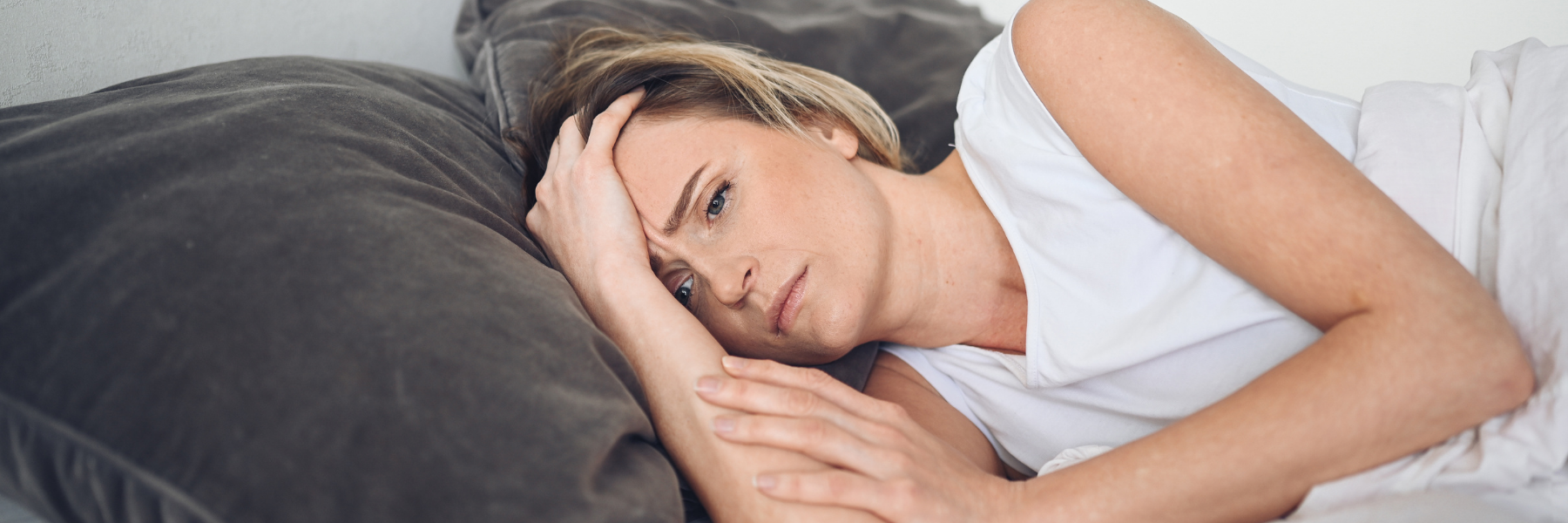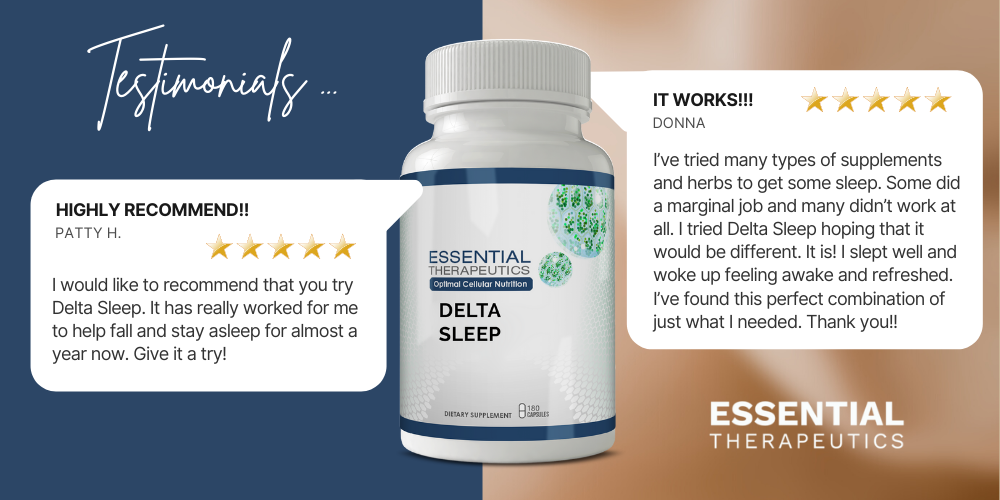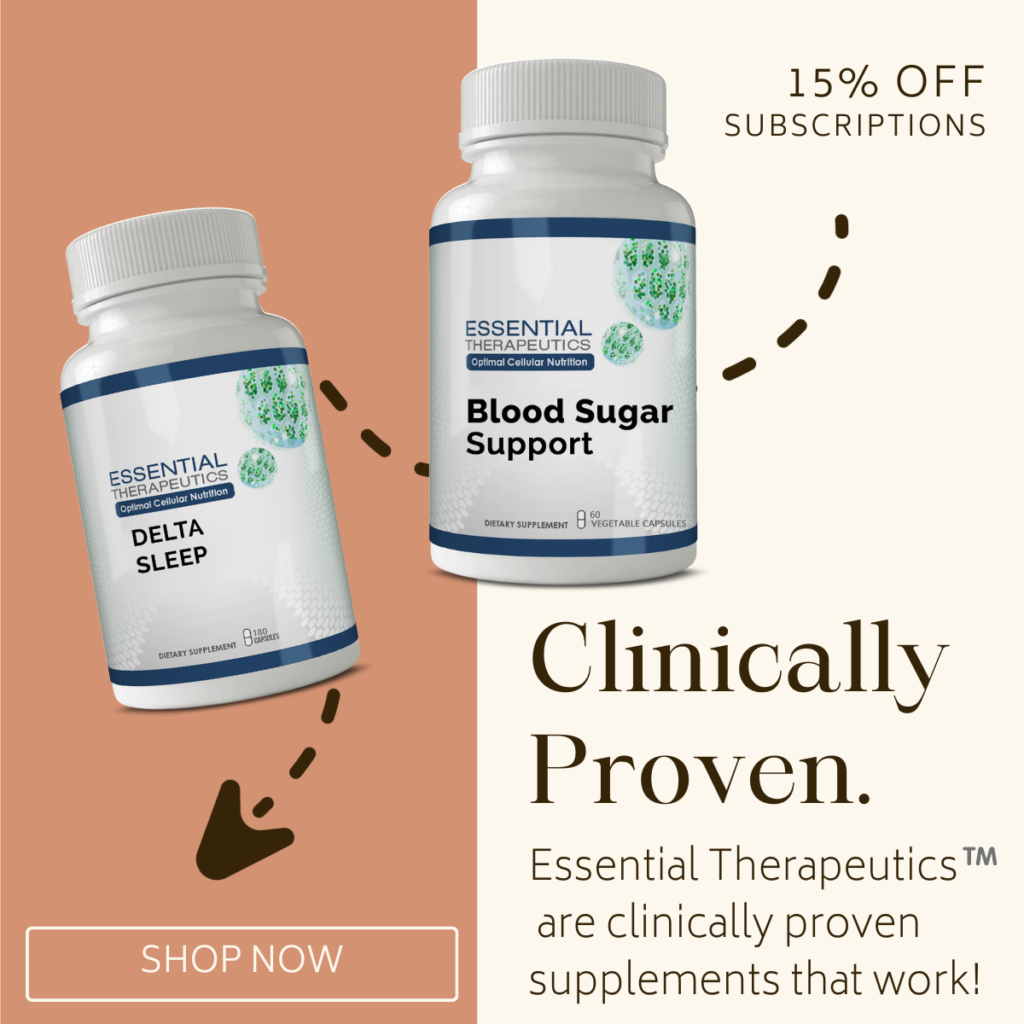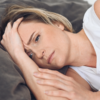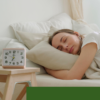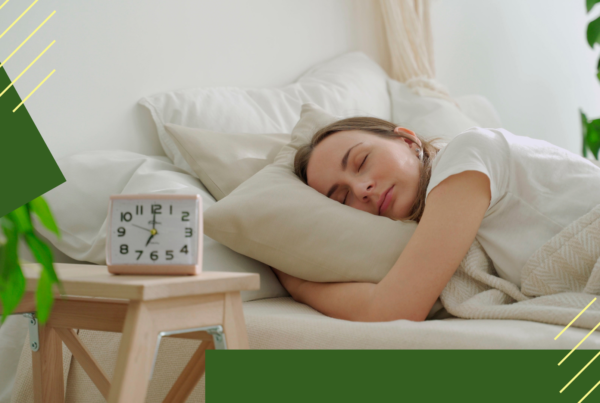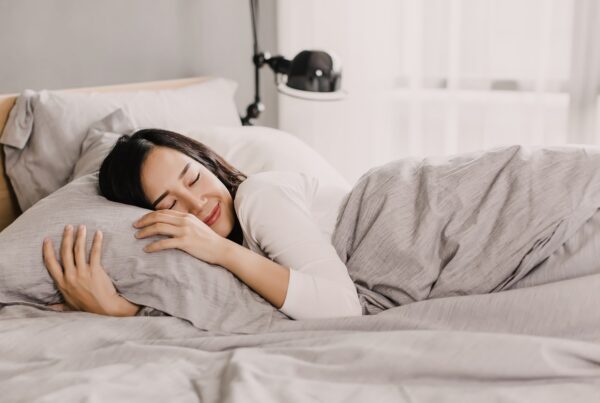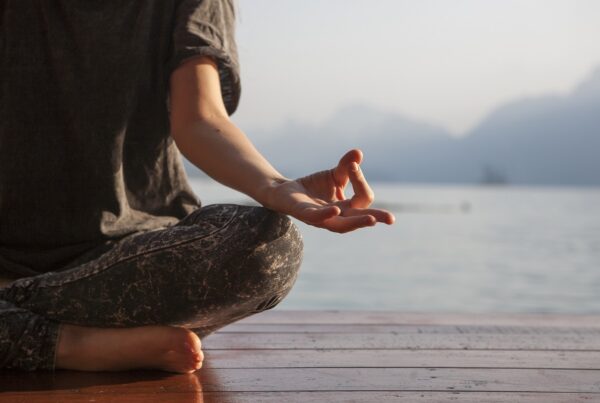It’s been a busy day at work, school, or around the house. You’re pooped and ready to relax, take a break.
So after running errands, making dinner, cleaning up, helping the kids with homework, picking up the house, paying some bills, maybe a little TV, and then feeling exhausted, craving a warm soft bed, you finally fall into bed and………….. immediately know this will be another one of those sleepless nights.
Ughhhh!!!!!! You’re “too tired to even fall asleep.”
You lay there exhausted but can’t turn your mind off. You toss and turn, pray, count sheep, take deep breaths, beg and plead to fall asleep. PLEASE let me fall asleep! Your hot, your cold, covers on covers off, you can’t get comfortable.
You look over at the clock, it’s been an hour and your still awake.
Tick, tock, tick, tock…..you’ve been in bed for two hours but still can’t fall asleep.
Only 6 hours until you have to get up.
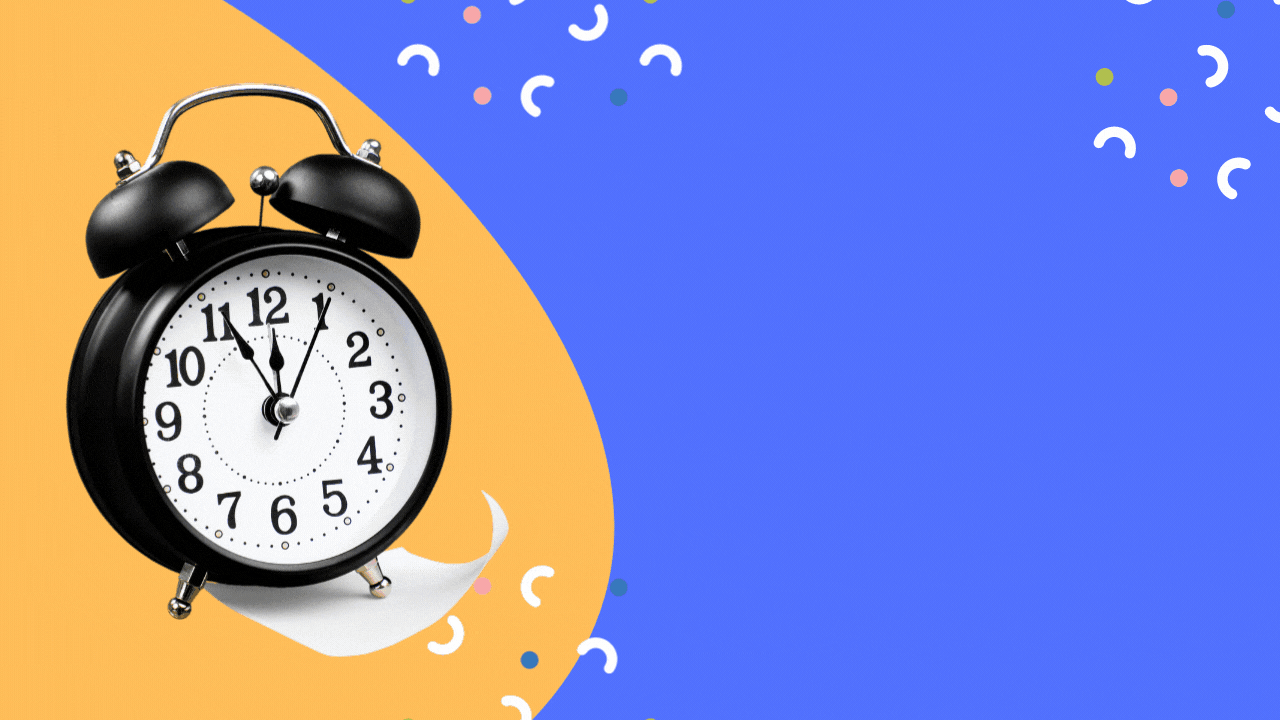
You’re wide awake. Why can’t I fall asleep? I’m exhausted. It’s three o’clock in the morning for heaven’s sake!
You can’t go back to sleep. You toss and turn. You feel anxious, frustrated, exhausted.
You have to be up in 3 hours! Tick, tock, tick, tock…..
PLEASE let me fall asleep!
Then without warning the alarm goes off, it’s time to get up!
You feel you’ve not slept a wink.
You try to think of excuses not to get out of bed. Your head hurts, your body aches, you feel exhausted-another sleepless night.
A warm shower and a cup of coffee help to get you going but by late morning, early afternoon, (definitely after lunch) you’re mentally and physically struggling to make it through the day.
You’re tired. Mentally. Physically. Totally exhausted.
And most likely, stressed, irritable and achy.
No time for a nap. You have things that need to get done-work, school, errands…..life.
Or How About This? Does this happen to you?
Your exhausted and you fall right to sleep, dead to the world, only to be wide awake 3-4 hours later, staring at the clock thinking it’s too early to get up.
It’s 3 a.m.
You count sheep, say a prayer, take some deep breaths, watch some TV, eat a snack or pace the house. Nothing works.
Might as well get up. Another sleepless night, another day feeling mentally and physically tired, irritable, stressed, blue, and achy. Eventually you get to where you experience a sense of dread as bedtime approaches. You know you need a good night’s sleep…..but you can’t get it!
And, just like the Bill Murray movie “Groundhog Day,” the process of poor sleep and exhaustion repeats itself day after day.
There are few things in this world that are more exhausting than being a chronic insomniac. And there are few things worse for your overall health than not getting enough sleep.
Poor sleep is associated with increased risk of:
+ Heart disease, stroke and heart attacks- poor sleep is associated with a 141% greater risk of heart disease
+ Dementia-“The risk for dementia was similar: People who reported routinely experiencing difficulty falling asleep had a 49% increased risk of dementia. And those who often woke in the night and had difficulty falling back asleep had a 39% increased risk of dementia.” Dr. Rebecca Robbins, an instructor in medicine at Harvard Medical School who specializes in sleep research had this to say about the study:
“We found a 56% increased risk of dementia and an 80% greater risk of all cause mortality over the following eight years among those who experienced both concurrent sleep difficulties — falling asleep or waking from sleep.”
+ Irritable bowel syndrome (IBS)
+ Chronic inflammation, which is associated with numerous unwanted health conditions including heart attack, stroke, Alzheimer’s, Parkinson’s disease, autoimmune arthritis, colitis, Crohn’s disease, etc.
+ Diabetes-adults who report getting 5 or fewer hours of sleep a night were 2.5 times more likely to have diabetes
+ Chronic pain-poor sleep is associated with a 40% increase in inflammation
+ Headaches-tension headaches, cluster headaches, and migraine headaches
+ Fatigue-bone tired, brain tired, exhaustion
+ Brain fog and increased risk of dementia
+ Restless leg syndrome (RLS) which further interrupts a good night’s sleep
+ Anxiety and depression
+ Poor immune function
+ Autoimmune disorders-rheumatoid arthritis, multiple sclerosis, Lupus, Hashimoto’s thyroiditis, etc.
+ Low thyroid function and all the symptoms that go with hypothyroidism-fatigue, brain fog, nerve pain, achy pain, poor circulation, weight gain, anxiety, depression, hair loss, brittle nails, etc.
+ Increased stress which can trigger anxiety, depression, brain fog, fatigue, pain and inflammation, and ironically poor sleep
+ Increased oxidative stress, which increases risk of pain, inflammation and certain cancers
+ Weight gain-NIH research shows that not getting enough sleep is associated with excess body weight and obesity. Poor sleep is also associated with lower levels of leptin, a hormone that alerts the brain that it has enough food, as well as higher levels of ghrelin, a biochemical that stimulates appetite. As a result, poor sleep may result in food cravings even after we have eaten an adequate number of calories.
+ Accidents -people with severe insomnia are seven times more likely to have work-related accidents than those who enjoy a consistent good night’s sleep.
+ Early death- A study, published recently in the Journal of Sleep Research, analyzed data collected by the National Health and Aging Trends Study (NHATS), revealed some sobering statistics! People who had trouble falling asleep most nights had about a 44% increased risk of an early death from any cause, the study found. Those who said they often woke in the night and struggled to return to sleep had a somewhat higher risk — a 56% increased risk of early death from any cause.
Even if you miss out on a good night’s sleep once or twice a week, the accumulative results are the same….chronic fatigue, brain fog, and lost days.
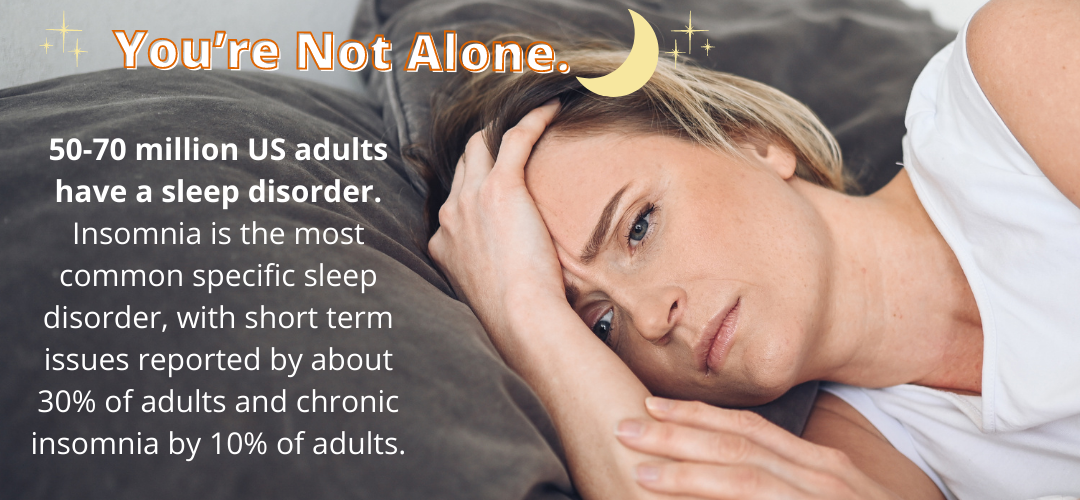
When asked what is the number one most important thing one can do to get healthy or maintain their health, my reply is always the same-“make sure you’re consistently getting deep restorative sleep.”
Most people, including health professionals when asked what’s the most important health habit for good health will advocate a healthy diet, some exercise, others a positive mental attitude. All are important.
However, the importance and far reaching affects of a good night’s sleep can’t be over emphasized. It’s during deep restorative that the body and mind are able to repair the damage from that day’s demands.
The body and mind need this time, 6-9 hours in order to repair stressed muscles, tendons, cells, and entire systems. Without this repair and maintenance the body and mind begin to deteriorate, and all sorts if diseases begin to raise their ugly head.
Benefits of a Good night Sleep Include:
- Allows the brain’s glymphatic (waste clearance) system to removes toxic byproducts from your brain reducing risk of Azheimer’s, Parkison’s and other oxidative stress diseases. This is a crucial step and one of few ways the brain can clear out toxic substances that can cause Alzheimer’s or Parkinson’s disease.
- Increases cellular, mental, and physical energy
- Increases your metabolism or ability to burn calories for energy and for losing weight
- Improves memory-converts short-term memories into long-term memories and erases unneeded information that might otherwise clutter the nervous system
- Nerve cells communicate and reorganize, which supports healthy brain function, crucial for mental clarity and critical thinking
- The body repairs cells, bones, muscles, tendons, ligaments, restores energy, and releases molecules like hormones and proteins needed for optimal health
- You need this phase to feel awake and refreshed the next day
I Have A Confession
I have a confession to make! I’m a recovering insomniac. Yep, it’s true, for years I struggled with getting a good night’s sleep.
Being a recovering insomniac is a bit ironic given the fact that over the last 20 years I’ve become a sleep expert.
I had no choice. To help my patients and myself feel, look and be healthy, I had to come up with a tried and true sleep aid. Poor sleep is simply too dangerous to ignore!
I’ve found that by helping my patients consistently get deep restorative sleep was the MAGIC recipe in them overcoming their low moods, chronic pain, fatigue, brain fog, headaches, RLS, IBS, and other unwanted symptoms.
Personally, I need 7 hours of sleep each night. I can go a few nights with 6 hours and do just fine the next day (often do). However, lack of sleep eventually catches up to me, like it does to all of us.
I had no trouble falling asleep. As soon as my head the pillow I was out. My problem was waking up in the middle of night to use the bathroom then laying awake for hours trying to go back to sleep.
But no matter what I tried, nothing really helped me stay asleep. Night after night I’d wake up and struggle to go back to sleep. Tick tock, tick tock, one sheep, two sheep, three sheep, four sheep…tick tock, tick tock, deep breaths, forget it I’m up for the day.
Years Of Frustration, Trial And Error
I spent years researching and trying natural sleep remedies, some were helpful-most were not. I tried melatonin, 5HTP, chamomile tea, Epsom salt baths, and even resorted to antihistamines, and other over the counter sleep aids. In a study of 31 melatonin supplements sold in stores, 71% were not within 10% of their listed dosage.
NOTHING WORKED FOR ME!
Melatonin helped me fall asleep, but not stay asleep. And if I tried to take it during the night when I woke up (3 am), I’d feel hung over the next day. Antihistamines gave me a sore, dry throat, and made me tired and heavy headed the next day.
But as desperate as I was to get a good night’s sleep, prescription sleep meds weren’t an option for me.
Sleep Medications Aren’t Safe
Taking sleep meds isn’t the answer-too many side effects.
Popular prescriptions for insomnia have recently made headlines due to “Risk of Death”.
The following are only some that have been named:
- Ambien
- Restoril
- Sonata
- Lunesta
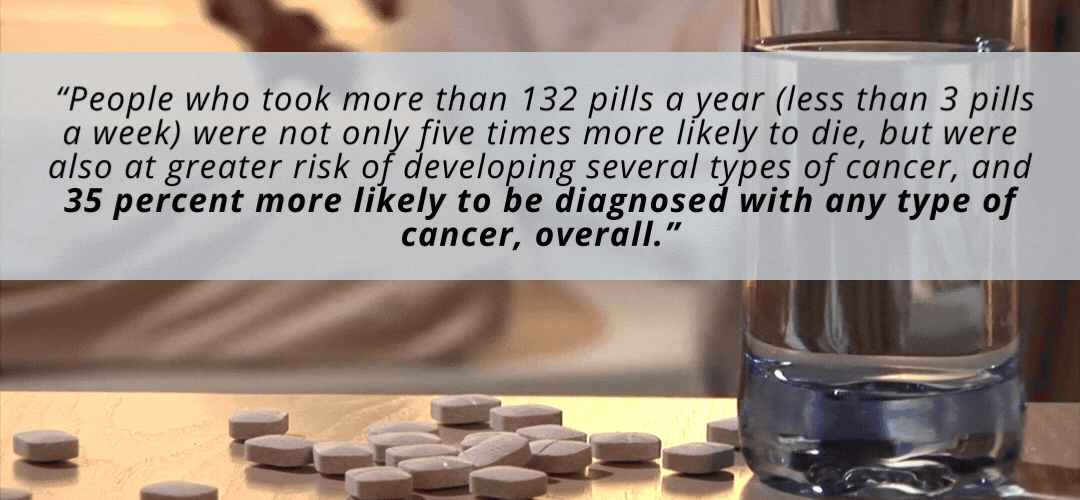
The research was carried out by experts at the Jackson Hole Centre for Preventive Medicine in Wyoming and the Scripps Clinic Viterbi Family Sleep Centre in California. They found people prescribed sleeping pills were 4.6 times more likely to die during a two-and-half-year period compared to those not taking the drugs.
The researchers said their “most striking finding” was that those on the lowest doses – four to 18 pills a year – had a 3.6 times higher risk of dying compared to non-users.
But the higher the dose, the greater the risk – with those taking 18 to 132 pills a year having a 4.4 times higher risk of dying, and people on more than 132 pills a year having a 5.3 times higher chance of death.
I share this sobering research on prescription sleep meds not to scare you but to encourage you to look for more natural sleep solutions!
And if the information above isn’t enough of a reason to look for natural sleep options, this stat adds fuel to the flames-eighty percent of people who take prescription sleep medications experience residual effects like oversleeping, feeling groggy, or having brain fog the next day.
In fact some researchers are reporting that prescription sleep medications may be the number one reason for mental decline-brain fog, poor memory, irritability, poor word recall, etc.
All Natural Delta Sleep Formula Is The Answer
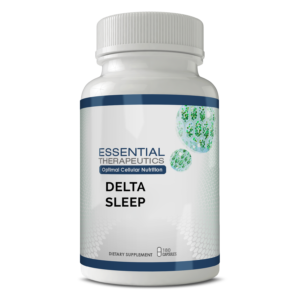 Delta Sleep, combines a special form of the brain calming nutrient GABA, the calming amino acid L-theanine, ashwagandha extract, valerian extract, and passion flower, for a potent, all natural sleep aid.
Delta Sleep, combines a special form of the brain calming nutrient GABA, the calming amino acid L-theanine, ashwagandha extract, valerian extract, and passion flower, for a potent, all natural sleep aid.
Delta Sleep can be taken at bedtime to help you relax and quickly fall asleep.
And it can be taken during the night to help go back asleep. It normally works within 10-15 minutes.
This all-natural, clinically proven, synergistic blend of ingredients is a game changer for insomniacs!
And unlike some other natural sleep aids, Delta Sleep will never make feel hung over, dopey or sleepy when you wake the next day, even if taken 2 and half hours before you need to get up.
And even better Delta Sleep has IS NOT associated with any of the unwanted side effects seen with prescription sleep aids.
The formula includes:
Ashwagandha, an ancient and popular medicinal herb used in traditional Indian Ayurveda medicine.
Ashwagandha is best known for its ability to reduce stress. Research shows that it helps, reduce elevated bedtime cortisol, stress and anxiety symptoms. Elevated cortisol, a stress hormone, is often the reason for trouble falling and staying asleep. It’s the trigger for catching your second wind or not being able to relax at bedtime.
In a 6-week study, people who took ashwagandha reported an 88% reduction in their anxiety levels.
And unlike prescription sleep aids which can cause short term memory loss, brain fog, and other mental clarity issues, ashwagandha actually improves mental clarity.
Another 8-week study showed that taking ashwagandha root significantly improved general memory, task performance, and attention.
L-theanine promotes mental relaxation and helps improve sleep by contributing to a number of changes in the brain:
- L-theanine elevates levels of GABA, as well as serotonin and dopamine. These chemicals are known as neurotransmitters, and they work in the brain to regulate emotions, mood, concentration, alertness, and sleep, as well as appetite, energy, and other cognitive skills.
- Increasing levels of these calming brain chemicals promotes relaxation and can help with sleep.
- L-theanine increases alpha brain waves. Alpha brain waves are associated with a state of “wakeful relaxation.” Alpha waves are also present during REM sleep and when meditating, being creative, or letting your mind wander during daydreaming.
Valerian root (valeriana officinalis) has long been used as a herbal remedy to treat insomnia. Valerian contains a substance known as valerenic acid which increases the affect gamma-aminobutyric acid (GABA) receptors in the brain. Valerian is very calming and acts as a mild sedative.
Passionflower (Passiflora incarnata) helps relieve insomnia and anxiety.
The Tried And True Special Synergistic Blend Works To Quickly To Help You Fall Asleep And Stay Asleep
Taken separately, these herbals and amino acids did little to help me or my patients fall asleep and stay asleep. However, the special combination of these all natural supplements was the key for helping others get a consistent deep restorative sleep.
My husband and I both use Delta Sleep and have found it to be very beneficial. We love the fact that if we wake up at 2 AM we can take another dose and it helps us fall back asleep without a groggy effect upon awakening to start our day. I have fibromyalgia/CFS and this helps me stay on top of getting quality sleep. Great product! – Edye Eichberger on May 25, 2021
My husband and I want to say how thankful we are to have learned about and to have benefited from this incredible product! After DECADES of not sleeping well, what a relief to be able to get solid, restful sleep again! This product works for us EXACTLY how it is described to work! We hope others will give this product a try and see for themselves what a great night’s sleep feels like, again!! – Yvonne Burton on May 25, 2021
Consistently fall asleep within minutes or back to sleep in minutes.
Delta Sleep won’t make you feel dopey, hung over, or sleepy the next day even if you take it during the night, 2-3 hours before you need to wake up. I recommend taking 2-4 capsules to help fall asleep and if needed take 2-4 capsules during the night to help you fall back to sleep.
Save 15% on Delta Sleep use this code: DELTA15




